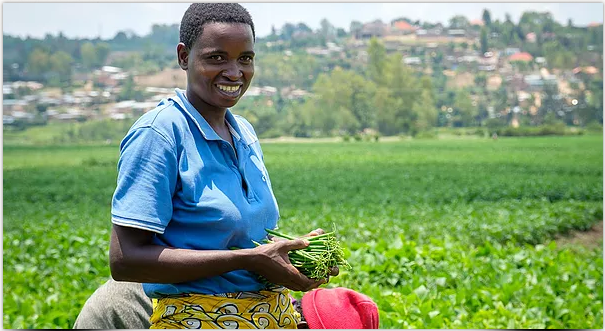OUR SUSTAINABILITY COMMITMENT

OUR APPROACH TO SUSTAINABILITY
COLEACP’s work through its programmes is designed and guided by sustainability in its three dimensions: economic, environmental and societal. Our main activity is to accompany MSMEs, farmer groups and their ecosystems to operate as more efficient value chains in a framework that respects people and their environment.
Each member and/or partner beneficiary of a programme managed and implemented by COLEACP is invited to sign a sustainability charter that marks their commitment to a process of continuous improvement of their activities’ sustainability. This is the first pillar of our approach.
The other two pillars are our training system and our sustainability self-assessment system.
OUR SELF-ASSESSMENT SYSTEM
COLEACP’s Sustainability Self-Assessment System is a business management tool for fruit and vegetable producers and suppliers based in ACP countries. Operators throughout the value chain can use the Self-Assessment System to prevent bad practices, integrate good practices, and consolidate the financial viability of their business.
The Self-Assessment System provides companies with a framework for continuous improvement. Answering simple questions about practical and achievable actions leads to step-by-step improvements and encourages compliance with regulations and standards, facilitating market access by enabling companies to provide evidence of good practice and meet buyers’ expectations.
The Self-Assessment System consists of two parts, both based on COLEACP’s Sustainability Charter:
1. Checklist
2. Metrics
COLEACP offers the support of trained consultants for those using the Self-Assessment System for the first time.
1. CHECKLIST
The checklist guides companies to:
- comply with the law
- meet buyers’ expectations
- improve their results by identifying opportunities to rationalise costs or increase revenues – in a sustainable way
2. METRICS
This is a set of measures enabling companies to:
- track costs and revenues
- identify areas for improvement
- strengthen business planning
- generate reports on key performance indicators to share with clients/investors/donors
TRAINING SYSTEM FOR GOOD SUSTAINABILITY PRACTICES

We believe that every operator – from executive to worker and from middle manager to the small producer – has a role to play in ensuring the sustainability of agriculture and food. That is why our learning methods and tools are designed to match qualification levels and needs at each link in the value chain.
Our local and international ACP experts are at the heart of this system. We rely on their ability to find training solutions adapted to local realities. By participating in the development and improvement of our teaching tools and methods, they guarantee the quality and accessibility of COLEACP’s ‘fair training’ system, which aims to strengthen beneficiaries’ skills to carry out projects in a sustainable way.
FOUNDING PRINCIPLES OF OUR TRAINING SYSTEM
Training begins with a careful identification of beneficiaries’ needs. This makes it possible to work in phase with beneficiaries’ projects and to avoid duplication with other aid programmes.
- The initial diagnosis is shared with COLEACP’s Training Department in Brussels, which ensures that teaching methods and tools are adapted according to the target, subject and skill levels.
- European expertise has been replaced by local expertise to promote local knowledge, accessibility, cost control and sustainable capacity building.
- The training activities are part of a voluntary and continuous process on the part of both the beneficiary and COLEACP. Training can only be successful in the long term.
- COLEACP seeks to maximise the scope and impact of its training through partnerships with other development actors, a knowledge-sharing policy, and the adaptation of training tools and methods to other sectors.
E-LIBRARY AND E-LEARNING
The COLEACP training system covers the following eight areas:
COLEACP’s training tools are available on the COLEACP e-services website. The teaching methods and tools can be accessed via an e-learning platform where you will learn, test and certify your knowledge of sustainable agribusiness.
These interactive training courses integrate levels of progression differentiated by degree of expertise. The e-learning platform can also be used to prepare for face-to-face training.







